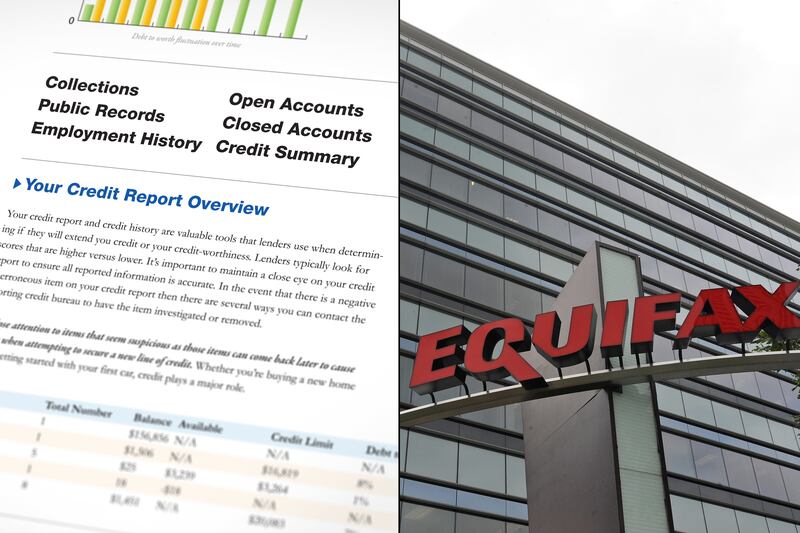If you think your credit report contains an error, you’re not alone. The Federal Trade Commission released a report Monday morning that details systemic errors in the compilation and maintenance of credit ratings, which determine what people pay for mortgages, auto loans, and credit cards—or even whether they can get them in the first place.

Among the findings: nearly 26 percent of consumers in a survey conducted by the FTC found at least one potentially material mistake on at least one of the three credit reports, and 20.6 percent had changes made after attention was drawn to the errors. “One out of five Americans has an error on their credit report,” FTC Chairman Jon Leibowitz told 60 Minutes in a report that aired Sunday night. “It's a pretty high error rate.” (The entire FTC report can be seen here.) And after completing the dispute process, 5 percent of the survey participants were found to have errors that could have resulted in them receiving less favorable terms for loans.
The consumer credit rating business is a large oligopoly dominated by three players: Experian and Equifax, which are both publicly held companies, and TransUnion, which was acquired last year by a partnership of the private equity firm Advent International and a unit of Goldman Sachs from investors who included the Pritzker family. Penny Pritzker, the prominent Obama fundraiser who may be tapped to be the next Commerce secretary, was chairman of TransUnion.
ADVERTISEMENT
The 60 Minutes report sheds light on an Orwellian system—people only tend to learn about flaws in their credit report after they have been denied, there’s a lack of transparency, and efforts to correct errors frequently are stymied by bureaucracy and poor customer service. None of the companies responded to the 60 Minutes report. The Consumer Data Industry Association, a Washington, D.C.–based trade group, issued a response to the segment, noting that other studies have shown better error rates. CDIA also tried to deflect blame, noting that inaccurate information may come due to “identity theft or a consumer’s lender may only have partial identifying information when an account is opened or the consumer may not choose to provide it.” It suggested that consumers be vigilant about checking and monitoring their credit.
Judging by the FTC report, consumers have good reason to be vigilant. The FTC enlisted 1,001 participants who collectively reviewed 2,698 credit reports. They identified errors, went through the dispute-resolution process, and then compared the fixed reports with the original ones. The results were less than confidence-inspiring. Of the participants, 263, or 26.3 percent, identified potentially material errors and prepared dispute letters; 206, or 20.6 percent, had changes made to a credit report (i.e., the agency admitted there was incorrect information). Nearly 13 percent of the participants had at least one of their credit scores altered as a result of their process. And 5.2 percent of the participants “experienced a change in score such that their credit risk tier decreased” and hence might be eligible for better lending terms.
Monday morning, CDIA issued a response to the FTC report. It noted that the report “reconfirmed the findings of several recent studies that conclude that credit reports are highly accurate.” In fact, the industry thinks the FTDC report indicates it is doing quite well. “The data tells us we’re getting it right with a high degree of frequency,” said Stewart Pratt, president and chief executive office of the Consumer Data Industry Association. The cases highlighted in the 60 Minutes report, including one in which a woman had to sue the credit bureaus in federal court to get her reports fixed, are outliers, he said. “We’re working from a lot better success rate than a lot of these stories have suggested.” CDIA cites a report by the Consumer Financial Protection Bureau from last December that showed “only between 1.3% and 3.9% of consumers disputed information in their credit report that they believed was in error,” as well as a 2011 study by the Washington, D.C.–based Policy and Economic Research Council, which found that 0.93 percent of all credit reports examined by consumers “prompted a dispute that results in a credit score correction and an increased of a credit score of 25 points or greater.”
For people who have had experience with the system, the FTC report simply helps to quantify the frustration many consumers feel. The vital process through which companies gather data and compile ratings doesn’t function at an optimal level. It is rife with errors and prone to fraud. A federal indictment handed down last week described how a $200 million credit-card fraud ring gamed the system to create hundreds of false credit records.
Here’s the problem. Lending has evolved from an intensely personal business—one in which the lender would personally assess the creditworthiness of a borrower—into an automated, purely data-driven industry. Banks rely on a computer-generated credit score, which is created by thousands of data providers furnishing information electronically to the computer systems maintained by the credit bureaus. Of course, these systems are compiled and maintained by humans, which means errors can easily be introduced. A wrong keystroke, an incorrect Social Security number, or simply a poorly designed software system can alter an individual’s rating.
It’s difficult to fix errors in part because the process has been dehumanized—people are supposed to enter their complaints electronically, and, as 60 Minutes showed, they are likely to be dealt with by people working offshore. But the real issue is that the credit bureaus don’t really regard consumers as their main customers. Yes, they sell credit reports and credit monitoring systems to individuals. But the bread and butter of the business is selling the data to banks, credit-card companies, and mortgage firms. In other words, they sell the information on a wholesale basis to other businesses. And as a result, they are not really set up to deal with consumers as individuals.






